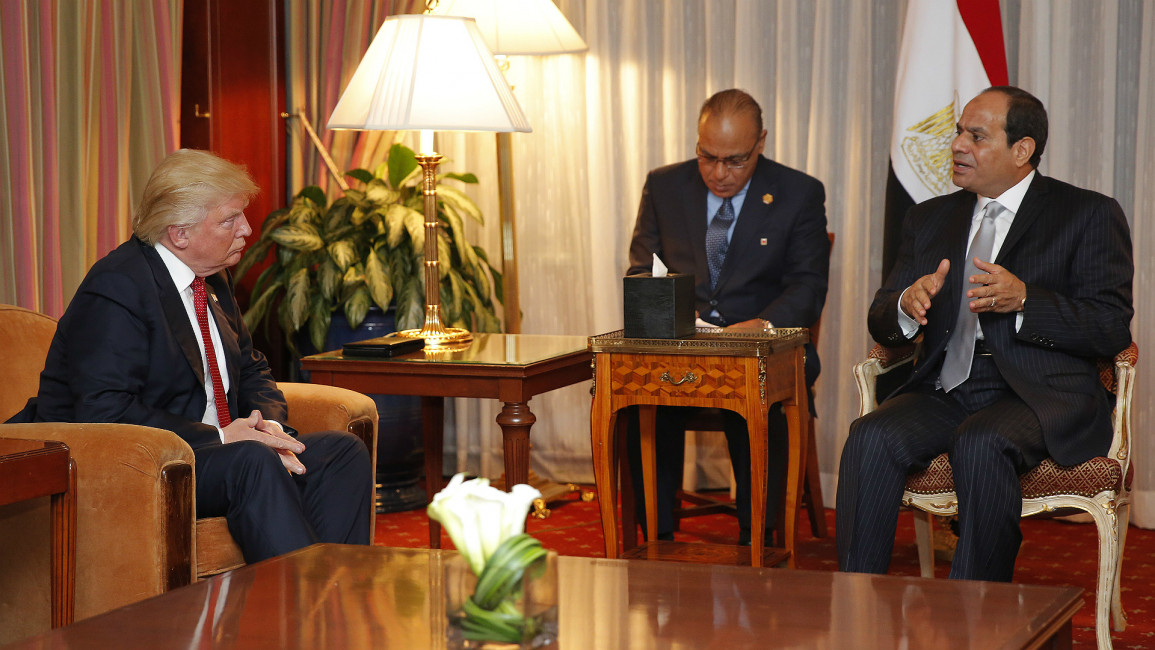Arming Pharaohs: Trump committed to Egypt military assistance
"The United States remains committed to the bilateral relationship which helped both countries overcome challenges in the region for decades," White House Press Secretary Sean Spicer said during a press conference.
Spicer's comments came just hours before Egypt's parliament approved an extension of the state of emergency in North Sinai for an additional three months, where security forces have attempted to eradicate the presence of Islamic State militants.
Cairo imposed the state of emergency after an increase in militant attacks against security forces in the region.
Cairo also said it will extend the deployment of forces involved in missions across the Arab world, including the Arab Gulf area, the Red Sea and the Bab Al-Mandab Strait, according to reports published in al-Ahram.
On Monday, speaker Abdel-Aal said "the army's mission in both the Arab Gulf and North Sinai seek one objective - that is defending the national security of Egypt and maintaining the integrity of its land against all threats."
"But there is a high price for this mission - army and police forces who lose their lives to defend their country by day and night," said Abdel-Aal.
Washington's latest show of commitment to Egypt may come as a surprise, considering Trump's fluctuating attitude towards US financial aid to Cairo.
In September 2012, the business tycoon questioned why the Obama administration continued giving billions of dollars to Egypt, before changing his tune in July 2013, stating: "We should not cut any aid to Egypt. Their country is in chaos and now they must form a normal civil government."
But following the fall of Mohamed Morsi, Trump has apparently shown a change of heart towards Egypt, after calling for an international conference last year, with his "friends in the Middle East": citing both Morsi and King Abdullah of Jordan.
Despite Trump's often Islamophobic rhetoric, Sisi has welcomed the US president's victory, arguing it could mark a positive development for Egypt.
Sisi has also defended Trump's inflammatory campaign trail statements, which included a proposed ban on Muslims entering the US, saying they Trump would behave differently once he had taken office.
The Egyptian leader, who was the first world leader to congratulate Trump on his election win, has even backed the billionaire media mogul's proposal to set up a database of Muslims in the US, arguing it would ensure "security and stability".
Sisi, who assumed power in 2014 following the ousting of Islamist President Mohammed Morsi, has painted himself as a regional leader in the fight against Islamic militancy – a stance that echoes Trump's priorities but is also keen to forge new alliances with Egypt racked by domestic economic woes, sparking civil unrest, and having recently fallen out with long-term ally Saudi Arabia, leading Riyadh to suspend crude oil sales to Cairo.



